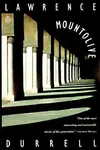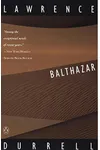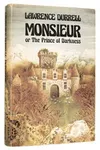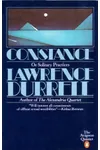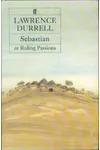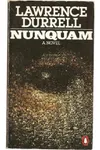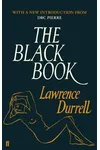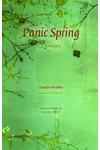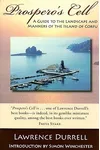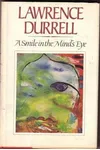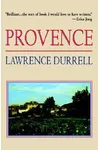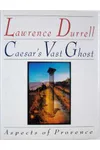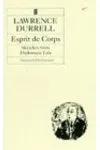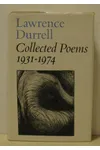Picture a British storyteller who whisked readers to sun-drenched Mediterranean shores with his lush, poetic prose—meet Lawrence Durrell! Born in 1912, this novelist, poet, and playwright crafted vivid worlds that blended memoir and fiction, earning him a place among 20th-century literary giants. His masterpiece, the Alexandria Quartet, is a love letter to love, memory, and the vibrant city of Alexandria.
Durrell’s life was as colorful as his stories. From his childhood in India to his nomadic years across Greece, France, and Egypt, his experiences shaped a voice that was both worldly and deeply personal. Let’s dive into the life and legacy of this literary wanderer!
The Making of Lawrence Durrell
Born in Jalandhar, India, to British parents, Lawrence George Durrell grew up steeped in colonial culture before being sent to England for schooling at age 11. He found formal education stifling and never attended university, instead chasing adventure and literature. By his 20s, Durrell was living on the Greek island of Corfu with his family, where he began writing poetry and novels. His early work, like The Black Book (1938), showed a bold, experimental style influenced by Henry Miller and T.S. Eliot.
World War II pushed Durrell to Egypt, where he served as a press officer in Alexandria and Cairo. These exotic locales fueled his imagination, planting the seeds for his most famous work. His love for travel and knack for capturing the spirit of a place became hallmarks of his storytelling.
Lawrence Durrell’s Unforgettable Stories
Durrell’s crowning achievement, the Alexandria Quartet (1957–1960), is a four-novel series—Justine, Balthazar, Mountolive, and Clea—that explores love and betrayal in wartime Alexandria. Each book revisits the same events from different perspectives, creating a kaleidoscopic narrative that’s as philosophical as it is sensual. Critics praised its rich prose and innovative structure, calling it a landmark in modernist literature.
Beyond the Quartet, Durrell penned The Avignon Quintet (1974–1985), a complex series blending reality and fiction, and Bitter Lemons (1957), a memoir of his time in Cyprus that captures both beauty and political tension. His style—lush, lyrical, and layered—invites readers to savor every sentence, while his themes of identity, memory, and cultural collision resonate universally.
Durrell also wrote poetry, plays, and travelogues, each infused with his wanderlust and sharp wit. Whether describing a Greek island’s azure waters or a lover’s fleeting glance, his words paint pictures that linger long after the page is turned.
Why Lawrence Durrell Matters
Lawrence Durrell’s work transcends time, offering a window into the human heart and the clash of cultures in a rapidly changing world. His innovative storytelling inspired writers like Anaïs Nin and Gerald Durrell, his brother, who became a celebrated author in his own right. The Lawrence Durrell Foundation continues to promote his legacy, fostering literary dialogue and celebrating his contributions to modernist fiction.
Durrell’s ability to capture the soul of a place—whether Alexandria’s bustling streets or Cyprus’s sunlit hills—makes his work a timeless escape. His novels remain a touchstone for readers craving depth, beauty, and a dash of adventure.
- Born: February 27, 1912, Jalandhar, India
- Key Works: Alexandria Quartet, Bitter Lemons, The Avignon Quintet
- Died: November 7, 1990, Sommières, France
Snag Justine from the Alexandria Quartet and dive into Lawrence Durrell’s intoxicating world of love and mystery!

